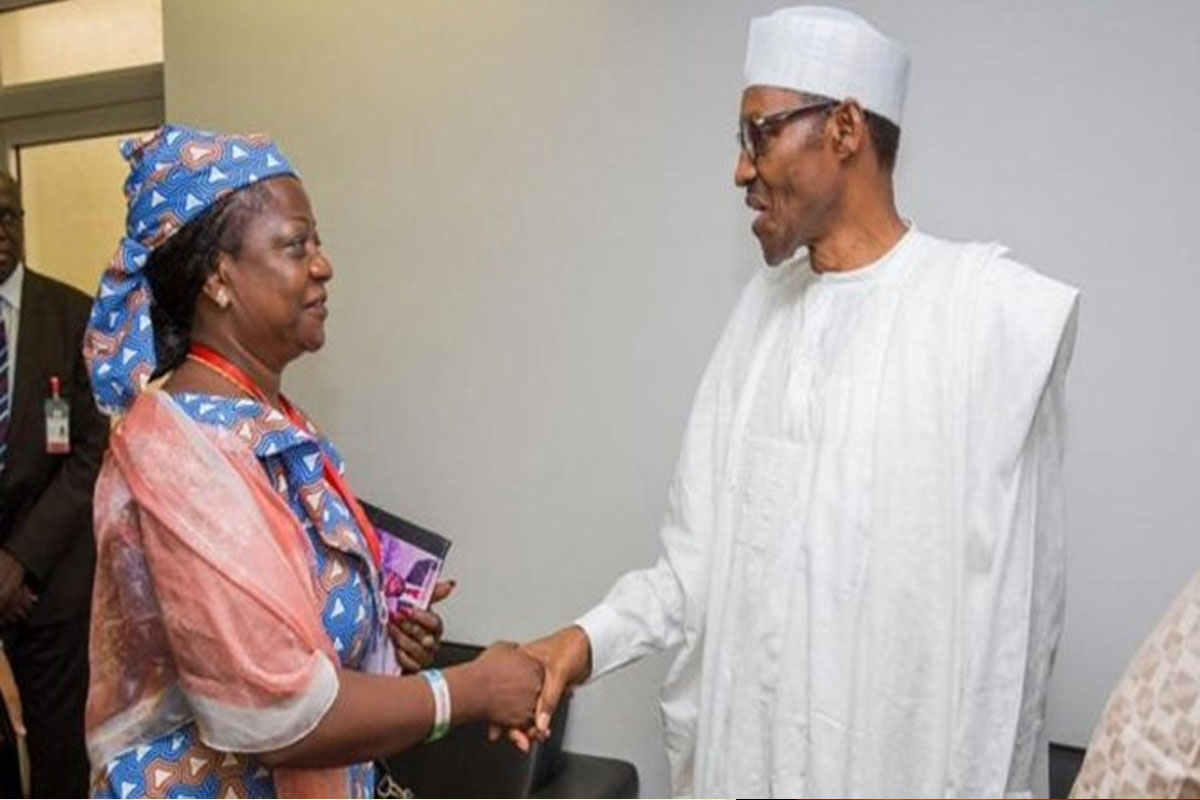He told journalists this at a press briefing on Wednesday.
His comment was in reaction to the Senate’s resolution to commence the screening exercise of Ms Onochie and other nominees.
Ms Onochie, a controversial presidential aide, was appointed by President Muhammadu Buhari in October 2020 as an INEC resident electoral commissioner to represent Delta State.
Ms Onochie was one of the Nigerian politicians identified in a PREMIUM TIMES analysis who use fake news as campaign strategies online.
The president, in a letter to the Senate, announced the appointment and sought the lawmakers’ confirmation.
The Senate President, Ahmad Lawan, had directed the Senate Committee on INEC to screen Ms Onochie and five other nominees.
This directive has also triggered outrage among Nigerians on social media.
Her appointment generated outrage as many described it as unconstitutional. Nigerians have since called on the president to withdraw the nomination on grounds that Ms Onochie is partisan and so it would be undemocratic for her to be appointed into such an office.
PREMIUM TIMES reported how her appointment violates Section 14(2a) of the Third Schedule of the 1999 Constitution as amended which states that “a member of the commission shall be non-partisan and a person of unquestionable integrity.”
‘Petition us’
When asked to comment on reactions that have trailed the latest move to screen her, Mr Basiru challenged Nigerians who feel her appointment is inappropriate to petition the Senate panel.
“As Nigerians, if you feel she is not qualified, you are entitled to file a petition before the committee. I challenge Nigerians who strongly believe that the nomination is inappropriate to approach the committee and challenge it in the exercise to see that the country is governed according to the law.
He also said the committee is not obligated to confirm Ms Onochie or any nominee alike.
“The fact that a matter is referred to a committee does not mean that the committee will affirm to such confirmation and I agree in the past, there have been instances where references have been made to committees, and they were returned unconfirmed or stepped down by the committee
“I’d rather say that we keep the gunpowder till the committee comes up with recommendations.”
#TwitterBan
The lawmaker was also asked the Senate’s stand on the government’s decision to indefinitely ban the operations of Twitter in Nigeria.
“On the twitter ban, I will say that the Senate has not considered the issue so if I give an opinion, it will be my personal opinion and of course, there is always the tendency that my opinion will be judged to be that of the Senate.
“So I don’t have the mandate of the Nigerian Senate to talk on the Twitter Ban and I will exercise restraint so that I will not be misquoted.”
And just like he said on Ms Onochie, the senator asked journalists and Nigerians who disagree to challenge the Attorney General, Abubakar Malami, who had ordered the prosecution of violators of the #TwitterBan.
“I also believe that journalists have access to the AGF to challenge him and come up with a better basis for whatever action he has done.
“As a lawyer, I am just of the opinion that whatever the basics of the Rule of Law…is that there will be a legal basis for legislative and executive actions so, I’m not here to talk about that but if the Senate considers it, we’ll be able to have a front. We will address it at the appropriate time.”
Culled from the Premium Times



































